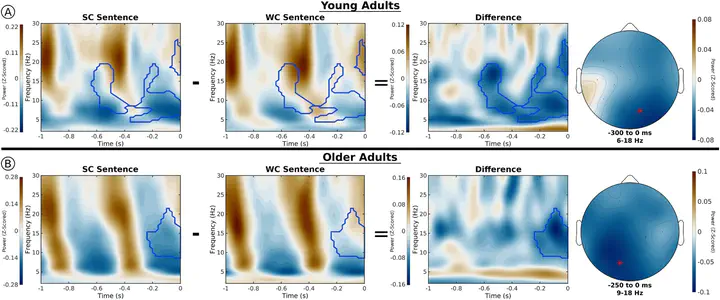
Abstract
The engagement of predictive mechanisms during language comprehension can facilitate processing and modulate neural oscillatory activity. These modulations include alpha-band activity decreases prior to expected words, reflecting anticipatory preparation, and frontal theta-band activity following unexpected words, reflecting engagement of cognitive control. It remains unknown how these oscillatory dynamics are impacted by aging. Here, we re-analysed previously collected EEG data from a sentence reading experiment with older adult participants to examine oscillatory responses to expected and unexpected words. Compared to younger adults, older adults’ frontal theta responses following unexpected words were delayed and reduced in magnitude. Alpha-band decreases prior to expected words were comparable across age groups, but only young adults’ pre-stimulus alpha activity was correlated with the post-stimulus frontal theta response. These results suggest older adults may engage anticipatory neural mechanisms comparably to younger adults, but do not engage the same control mechanisms following prediction errors.